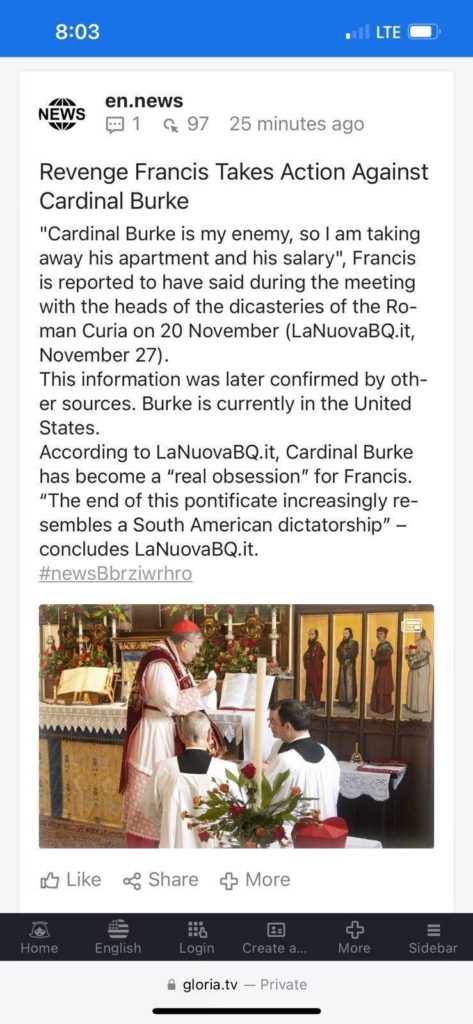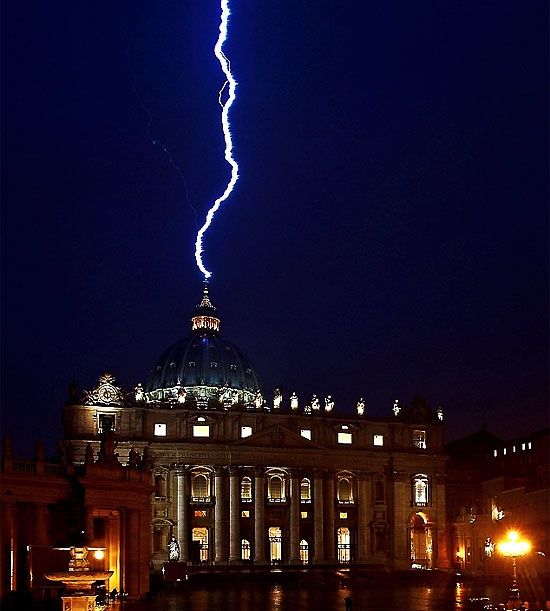
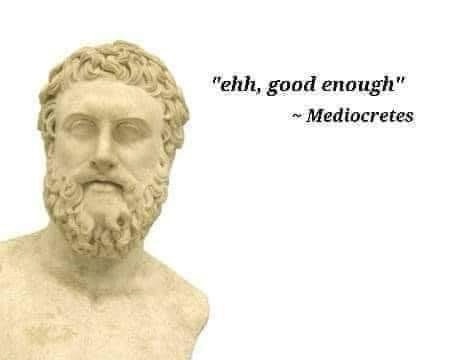






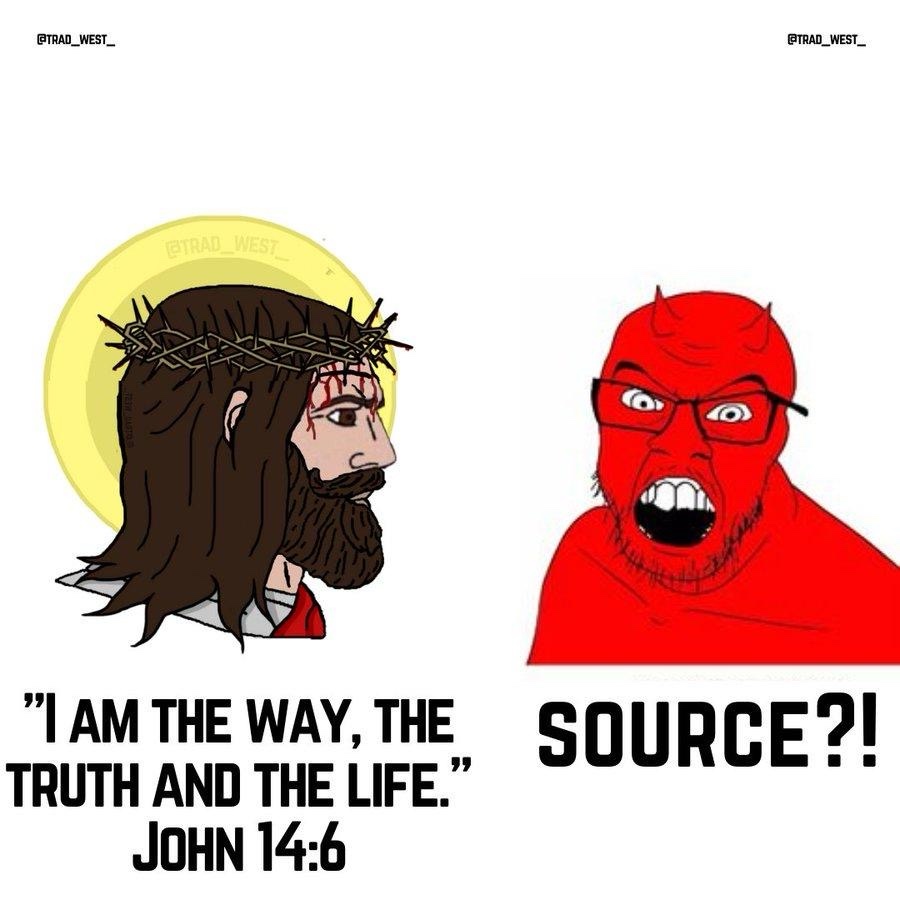

















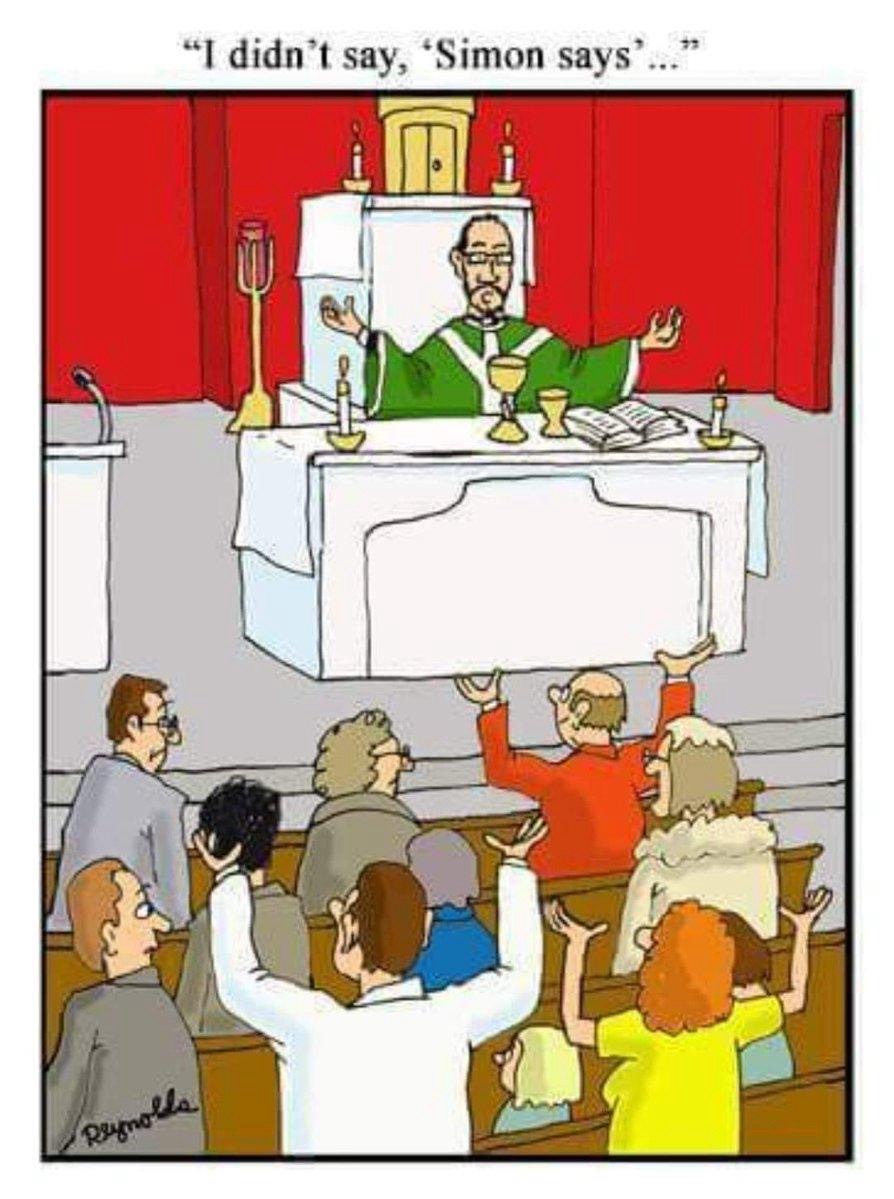



















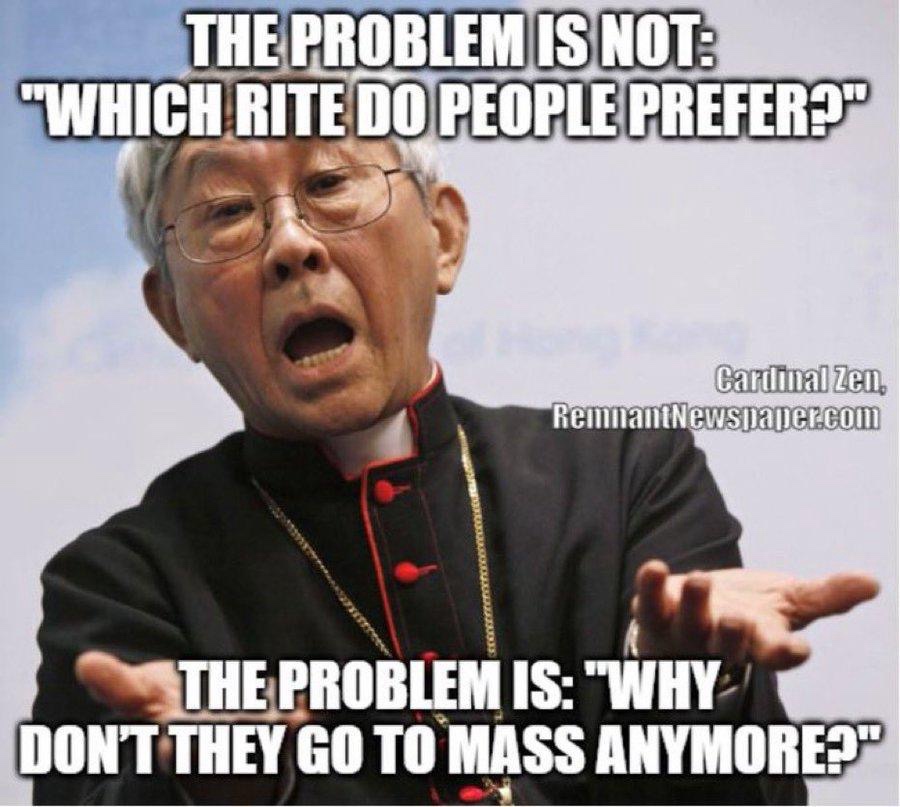












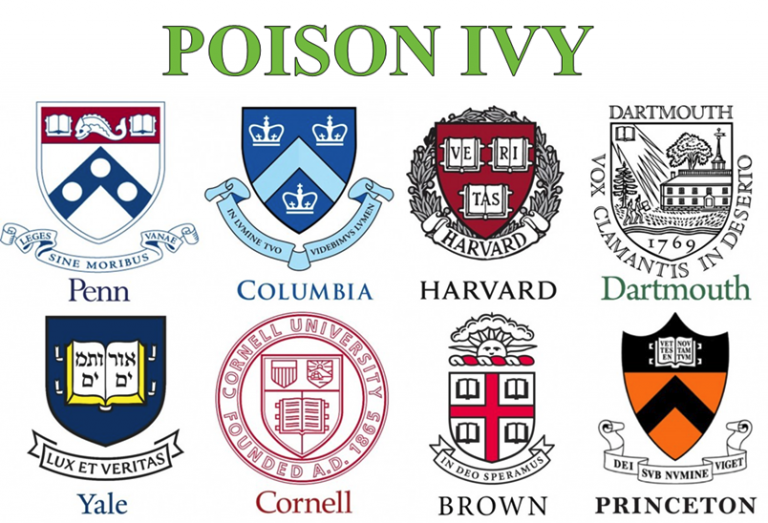
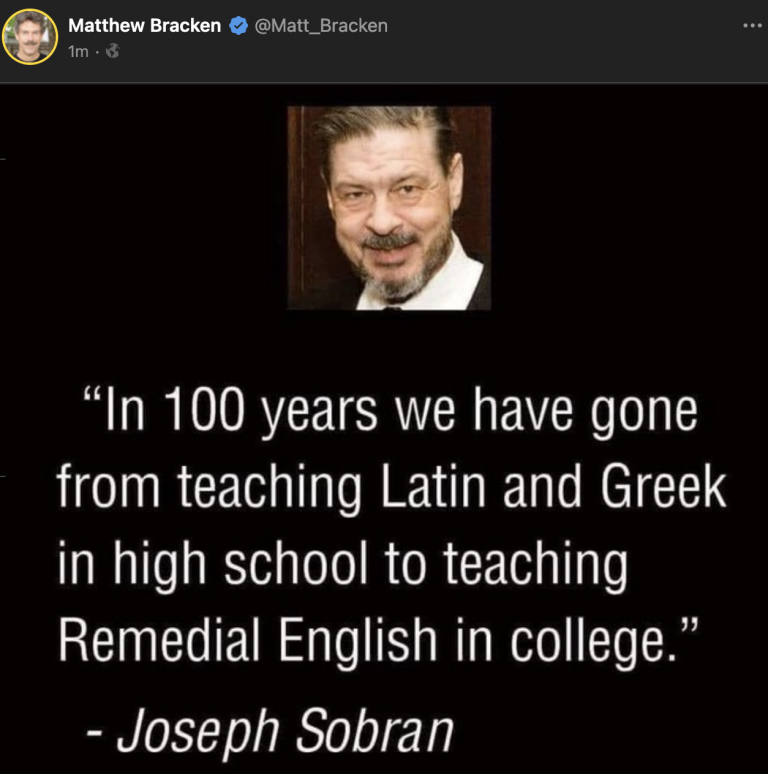









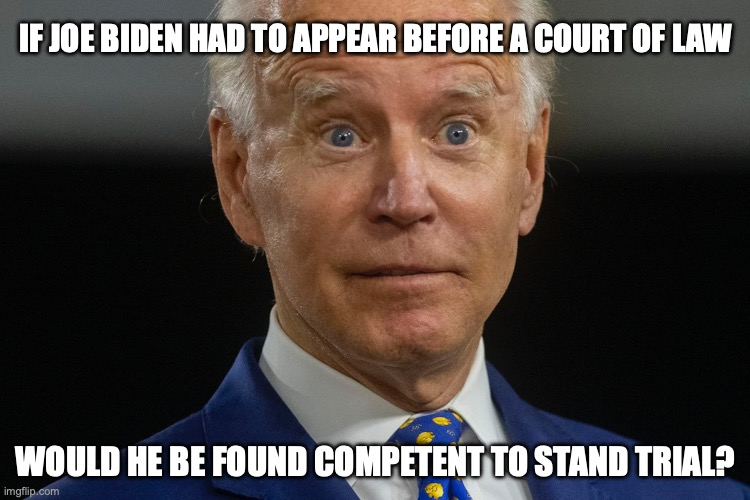






Category Archives: Uncategorized
Sticky post: The Full “Is the Pope Catholic?” Conference – viewing free for all
This really was a fantastic program from start to finish. Dr. Mazza has kindly made it available to all for free. Supernerd has worked up the timestamps below.
“Is The Pope Catholic?” — a conference seeking the Truth about the “Two Popes.” This conference was recorded on Saturday December 9, 2023, and features the following speakers: His Excellency Archbishop Carlo Vigano, Fr. Paul Kramer, Dr. Ed Mazza, Ann Barnhardt, and Elizabeth Yore.
Links:
“On The True and False Pope: The Case Against Bergoglio” by Fr. Paul Kramer — amzn.to/3RexURq
“The Third Secret of Fatima & The Synodal Church: VOL. I Pope Benedict’s Resignation” by Dr. Edmund Mazza — amzn.to/3uUU83l
“Yore children” — www.yorechildren.com
Ann’s Bergoglian Antipapacy homepage
Chapters:
“Qué soï era Immaculado Councepcioũ.”
Pope Pius IX issued the Papal Bull “Ineffabilis Deus” on this date in ARSH 1854 in which the Dogma of the Immaculate Conception of the Blessed Virgin Mary was infallibly defined.
I wonder if Trad, Inc. “Fwanciss is definitely Pope and schism is virtuous!” partisans today believe that Pope Pius IX even had the authority to make such a dogmatic declaration, or if Catholics are bound to believe that the Blessed Virgin was, in fact, conceived without the stain of Original Sin? They have declared war on the Papacy itself (I guess they think the Freemasons have been right all along??) in service to their intransigent error, and have already openly declared that Vatican I was “wrong” in service to their money-and-human-respect driven campaign to refuse to investigate much less acknowledge the obvious truth that Pope Benedict never validly resigned, so it’s a VERY SLIPPERY SLOPE to schism, heresy and total apostasy from there. For what? A few bucks, and a few social invitations? Men without chests, indeed….
Here is the text of the declaration. Only SEVENTY-FOUR words, in English.
We declare, pronounce, and define that the doctrine which holds that the most Blessed Virgin Mary, in the first instance of her conception, by a singular grace and privilege granted by Almighty God, in view of the merits of Jesus Christ, the Savior of the human race, was preserved free from all stain of original sin, is a doctrine revealed by God and therefore to be believed firmly and constantly by all the faithful.
To confirm this, God sent The Blessed Virgin herself to a tiny village in southern France called Lourdes to appear to an illiterate teenaged peasant girl – at the town garbage dump. Note that the Blessed Virgin did not appear to the theological faculty at Paris, or Leuven or Rome to confirm a nuanced and debated truth about her very existence. No. She appeared to an illiterate teenaged peasant girl who had just recently been reprimanded in her catechism class for not knowing THE THREE PERSONS OF THE TRINITY.
It is shocking to think: how could someone who didn’t even know the Three Persons of the Trinity be deemed worthy to converse with the Mother of God? First, because Bernadette Soubirous was 100% Catholic by virtue of the Sacraments, in which GOD IS THE ACTOR upon the person. But it is clear that Bernadette was deemed worthy because of her CHARITY and her HUMILITY. She went to Mass and Confession and prayed the Rosary and did these things WELL without being able to pass a catechism test because her soul was pure and filled with love of God and of her fellow man, and because she was filled with humility.
It is also one a species of miracle – which the local clergy and bishop eventually realized – that an illiterate peasant girl like Bernadette could report back to the Bishop, per his request, that the Lady said to Bernadette that the Lady was the “Immaculado Councepcioũ”. For an illiterate peasant girl who struggled to name the Three Persons of the Trinity, for her to drop this phrase – and not in French, and not in Latin, but in her own local dialect of the Occitan language, which is itself an interstitial branch between French and Spanish – was basically impossible unless Bernadette was taught the phrase by The Lady herself, exactly as Bernadette said. Bernadette even said that the Lady had her repeat the words multiple times so that she wouldn’t forget, and then Bernadette kept repeating them as she walked back to town to tell the Bishop so that she wouldn’t forget them.
But why does it even matter if the Blessed Virgin was conceived without the stain of Original Sin? Because the Immaculate Conception speaks directly to the Divinity of Our Lord.
This dogma and non-negotiable tenet of Christianity teaches that Mary was, by the grace of God, prevented from carrying the stain of Original Sin from the moment of her conception. To deny this is a deal-breaker. The logical consequences of denying the Immaculate Conception inevitably lead to denying the Incarnation and Divinity of Jesus Christ Himself. When the Blessed Virgin appeared to Bernadette and told her in no uncertain terms and in St. Bernadette’s local micro-dialect of the Occitan language, “Qué soï era Immaculado Councepcioũ” the Dogmatic Definition of just over three years earlier by Pope Pius IX was underlined by Heaven itself. All that remained was for science to progress sufficiently to confirm this – and that has now happened. More on that in a second.
Mary was saved from Original Sin by her Son, saved by Him like all of the other faithful, it is just that the timing of her salvation was different from everyone else. This is why Mary, sinless though she is, still calls God “my Savior” in her Magnificat in Luke 1:46-55. Instead of letting Mary fall in the mud puddle of Original Sin like the rest of us, God stuck out His Arm back through time from the Cross and kept her from falling in the mud puddle of Original Sin in the first place – but if it weren’t for God’s positive action of reaching out across time from the Cross and holding her from falling, she would have fallen. This is called “grace”, and is what the Angel Gabriel was referring to when he greeted Mary at the Annunciation with the words, “Hail! Full of grace! The LORD is with thee. Blessed art thou among women.” Luke 1:28
Full of grace means FULL. OF. GRACE. How full is full? Full is totally full. To the brim. Full does not mean half-full or mostly-full. Full means full. Mary was FULL OF GRACE.
And because Mary was FULL of grace, as we know directly from the inerrant words of the Gospel of Luke, there was absolutely no room for sin. Mary didn’t sin because God her Savior had filled her with grace and therefore she just COULDN’T sin. Most of us reading this have a tiny taste of what this is like. For example, I’m guessing that everyone reading this would be incapable of killing a baby. We just COULDN’T do it. No matter what threat was made against us, no matter what the adverse consequences to our own lives might be, we would take any adverse consequence before killing a baby. We are simply incapable of performing that act. Why? What is that internal force of energy that prevents us from committing acts of evil even when under intense duress and threat? It is grace. Pure and simple.
Sadly, most of us have a little grace, but are not in any way FULL of grace. I am personally much closer to being full of… detritus than of grace (which many of you have already pointed out to me – thank you very much), hence the daily, persistent, repeated sinning on my part. And I suspect it is a similar situation with you, dear reader, with the grace-to-detritus ratio being much higher for you than for me. I really am quite full of… detritus. With Mary there was no detritus because God her Savior had FILLED her with grace, and thus there was no room for detritus, and thus there was no sin. It’s really just 2nd grade math if you think about it. But WHY? Why was it essential for Mary to be sinless and sinless from the moment of her conception? That’s where the science comes in.
There are two phases to Mary’s existence. The first phase was from the moment of her conception until the Annunciation, which is when Jesus was conceived in her womb by the Holy Ghost. The second phase was from that moment of Jesus’ conception forward for all eternity. Each phase has its own physiological delight attached to it which required Mary to be a sinless vessel for Our Lord.
First, the pre-Annunciation period. As it has been discovered just within the last few decades, all baby girls have all of the eggs that are ever going to be in their ovaries fully formed not just at birth, but fairly early in their fetal development phase. Unlike men who are continuously producing new sperm, a woman’s eggs aren’t created and formed with each menstrual cycle. All that is happening during a cycle is that an egg, which has been fully formed in a woman’s body since she was a pre-born fetus, is released into the reproductive tract. What this means theologically is that the egg containing the 23 chromosomes that God would miraculously fertilize with 23 chromosomes that He miraculously supplied (including a Y chromosome) to become the Word Made Flesh, Jesus Christ, was physically present inside Mary’s body from the time that Mary was inside of her mother’s, St. Anne’s, womb. That egg, and those chromosomes, that physical constituent of Our Blessed Lord was present inside of Mary’s body, waiting to be . . . if I may use the word . . . consecrated. The word consecrate, when broken into its Latin components means:
Con: With
Secr: Holy
Ate: Territory of a Ruler
And so, Mary was, from the time she was inside St. Anne’s womb, already carrying a portion of Our Lord’s physicality, namely 23 of His chromosomes. And thus Mary was, from her very beginning, already a proto-tabernacle, already the Ark of the New Covenant, carrying within her what would be consecrated into The Law Incarnate, The High Priest, and The Bread of Life – just like the Old Ark, except perfected and fully fulfilled as God Incarnate. And as we know from the book of Exodus, the Old Ark had to be “perfect”. And thus, the Ark of the New Covenant was TRULY perfect, except this perfection was a perfection that only God Himself could accomplish: the perfection of Mary, full of grace and thus saved from all sin, including Original Sin.
The second phase is actually broken into two sub-phases. The first sub-phase is when Mary was pregnant with Jesus and His entire body was inside of hers.
The second phase is that phase from the time of Jesus’ birth forward into all eternity. Jesus is STILL, to this day, right now as you are reading this, physically inside of Mary in a unique way. It was discovered just a few short years ago that immune cells pass from a pre-born child to the mother across the placenta. Not only do these immune cells, which are the child’s and thus carry the exclusive and complete DNA of the child, pass across the placenta, but they persist in the mother’s body for the rest of her life. A woman who has carried a son has immune cells with Y-chromosomes in her bloodstream that can now be filtered out of her blood and observed. Female children also pass cells to their mothers.
Thus, a woman truly does carry her children around inside of her, with their DNA coursing through her heart, for the rest of her life. That isn’t just a sentiment – it is a physiological fact.
Thus, Mary continued and continues to this day to be a perpetual, living physical tabernacle of her Son, as she carries cells with His DNA in her bloodstream.
And so now we see why Mary was and had to be filled with grace and thus saved from the stain of Original Sin from the moment of her conception eternally forward – because she was and is a perpetual Ark of the New Covenant.
This also explains why Mary’s body was assumed into heaven immediately at the end of her earthly life, because her body literally contained living cells of Our Lord and thus her body could not remain on earth in physical death to decay in any way.
Knowing that Christ rising again from the dead, dieth now no more, death shall no more have dominion over Him.
Scientes quod Christus resurgens ex mortuis jam non moritur : mors illi ultra non dominabitur.
-Romans 6: 9
She simply was afforded the same physical resurrection that all of the faithful will receive, albeit immediately for her, given her very special state, both spiritually and physically. This is what is doctrinally referred to as “The Assumption”.
St. Bernadette, pray for us.
Our Lady, conceived Immaculate without the stain of Original Sin, pray for us.
Lord Jesus Christ, have mercy on us.
“Qué soï era Immaculado Councepcioũ.”
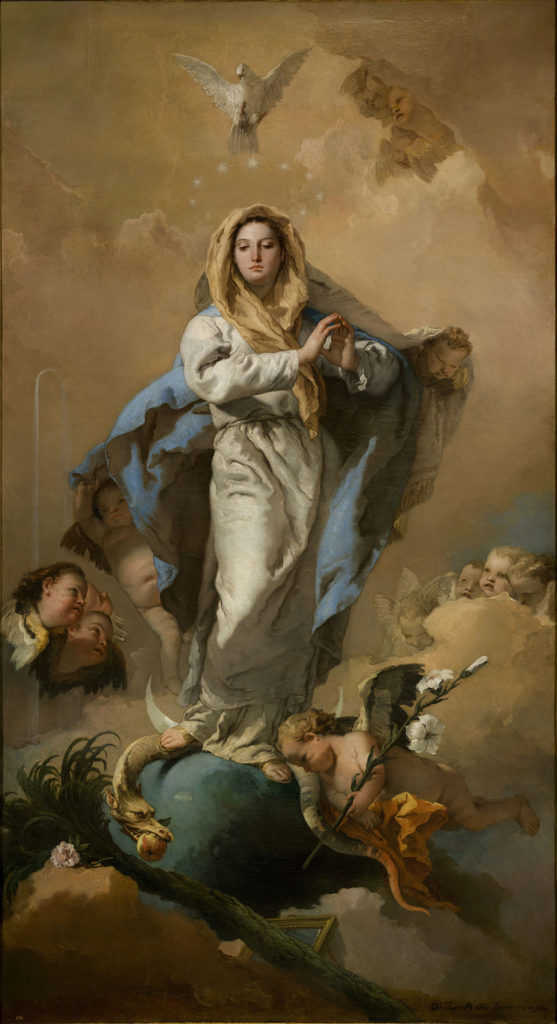
The Immaculate Conception, Giovanni Battista Tiepolo, ARSH 1768 – 86 years BEFORE the dogmatic definition
Dr. Mazza ON FIRE in interview with T. Gordon, and LAST DAYS TO ENROLL FOR SATURDAY’S FREE CONFERENCE!
Here’s Dr. Mazza being excellent, as usual, on the “Rules for Retrogrades” show. Absolutely FASCINATING stuff. Well worth the listen.
And don’t forget to enroll in Dr. Mazza’s big conference, taking place on Saturday!
“Is the Pope Catholic?”
A Conference Seeking the Truth about the “Two Popes”

Saturday December 9, 2023
Featuring:
His Excellency Archbishop Carlo Vigano
Fr. Paul Kramer
Dr. Ed Mazza
Ann Barnhardt
Elizabeth Yore
PLEASE USE THIS FORM TO SIGN UP
Happy Liturgical New Year!
To You I lift up my soul: in You, O my God, I trust; let me not be put to shame; let not my enemies exult over me. No one who waits for You shall be put to shame.
Ad te levávi ánimam meam: Deus meus, in te confído, non erubéscam: neque irrídeant me inimíci mei: étenim univérsi, qui te exspéctant, non confundéntur.
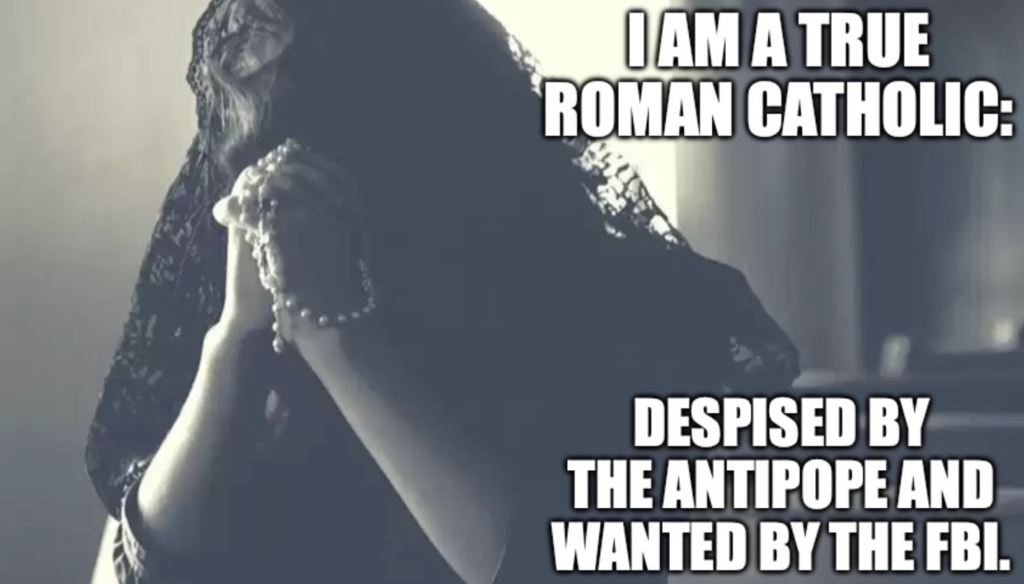
#TOLDYA. Trad Inc. makes it official: their entire driving philosophy is THE SIN OF ACEDIA. Acedia is when you don’t care, and you don’t care that you don’t care.
So this manifesto was posted on Rorate-Caeli… and then deleted. It is a position statement written by nine Italians and picked up and pushed by Trad Inc.
This position statement is an EXPLICIT, UNASHAMED love letter to the SIN OF ACEDIA, and an EXPLICIT CALL FOR OTHERS TO EMBRACE THE SIN OF ACEDIA.
This is the textbook definition of SCANDAL – encouraging others to commit a sin, in this case ACEDIA.
I have written extensively on acedia, which you can find here, but the short version is this: ACEDIA is the sin of just not giving a damn, but even beyond that, ACEDIA is when you don’t give a damn that you don’t give a damn.
Even Canon Law contains an EXPLICIT warning against and condemnation of the sin of ACEDIA. It’s Canon 748:
Canon 748. §1. All persons are bound to seek the truth in those things which regard God and His Church and by virtue of divine law are bound by the obligation and possess the right of embracing and observing the truth which they have come to know.
Years ago, a VERY wise priest told me that ACEDIA is the primary, overarching spirit of oppression that Lucifer and the demons have upon the city of Rome. Think about it: almost ALL of the sins and massive moral failures that we see in Rome, from sodomy to fornication, to sloth and effeminacy, cowardice… ALL of these sins have at their root the fact that the person in question just stopped giving a damn, and knowing that they stopped giving a damn, don’t give a damn. In fact, as I have personally seen, and as is 1000% confirmed in this truly evil document, these people hold their “not my circus, not my monkeys” pathological indifference as a PROOF OF THEIR INTELLECTUAL AND MORAL SUPERIORITY.
I’m reprinting this satanic bilge here in full so that these people can’t deny or hide from this. Oh no, I want these people to be SHAMED by their ghastly, ghastly sin, and their attempt to recruit others into their own little hell-on-earth of indifference and pathetic navel-gazing. Hopefully they will repent of this evil, and the flame of charity will be rekindled in their souls so that they start giving a damn about the fact that an Antipope is trying to raze the Church on Earth to the ground before our very eyes – that they will fall in love again, or for the first time, with THE TRUTH. His name is Jesus Christ.
And I want to get out ahead of this so as to prevent as much damage to souls as possible.
You know why?
BECAUSE I ACTUALLY GIVE A DAMN. All day, every day. And may God preserve me in this to the end. The opposite of love isn’t hatred – the opposite of love is INDIFFERENCE.
And because iniquity hath abounded, the charity of many shall grow cold.
Et quoniam abundavit iniquitas, refrigescet caritas multorum.
https://webcache.googleusercontent.com/search?q=cache:https://rorate-caeli.blogspot.com/2023/12/the-following-text-written-by-group-of.html
The following text, written by “The Group of the Nine” (nine Italian lay Catholics), was published on Marco Tosatti’s website Stilum Curiae (link). The translation was made by Robert Moynihan, who graciously gave Rorate permission to reproduce it here. (It will be published with Moynihan’s commentary as Letter #169 of 2023. To sign up for the Moynihan Letters, go here.) As Robert says, “This document expresses the frustration of many Catholics at this time.”
Cherish these Magic MEMEnts.



























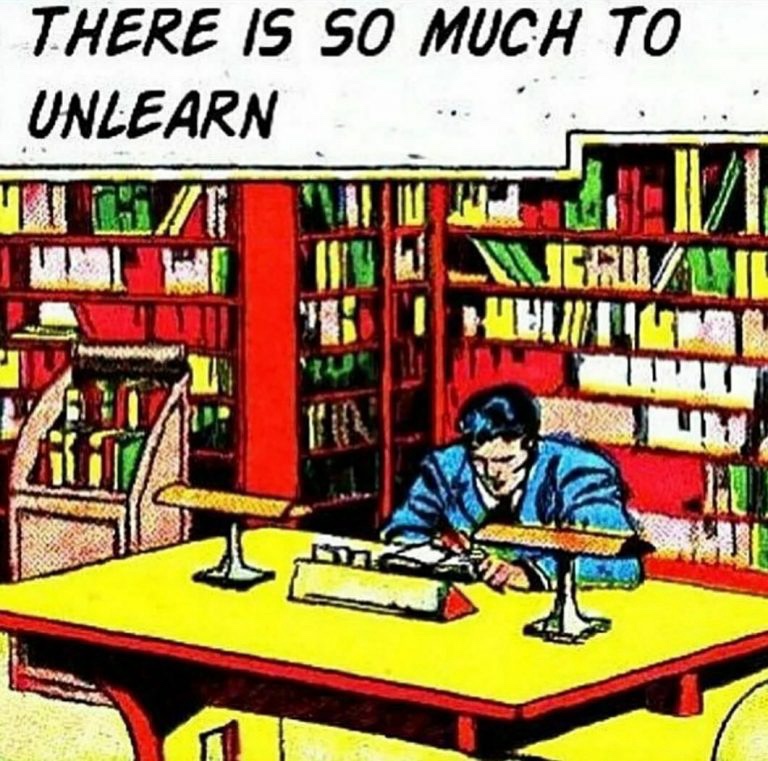













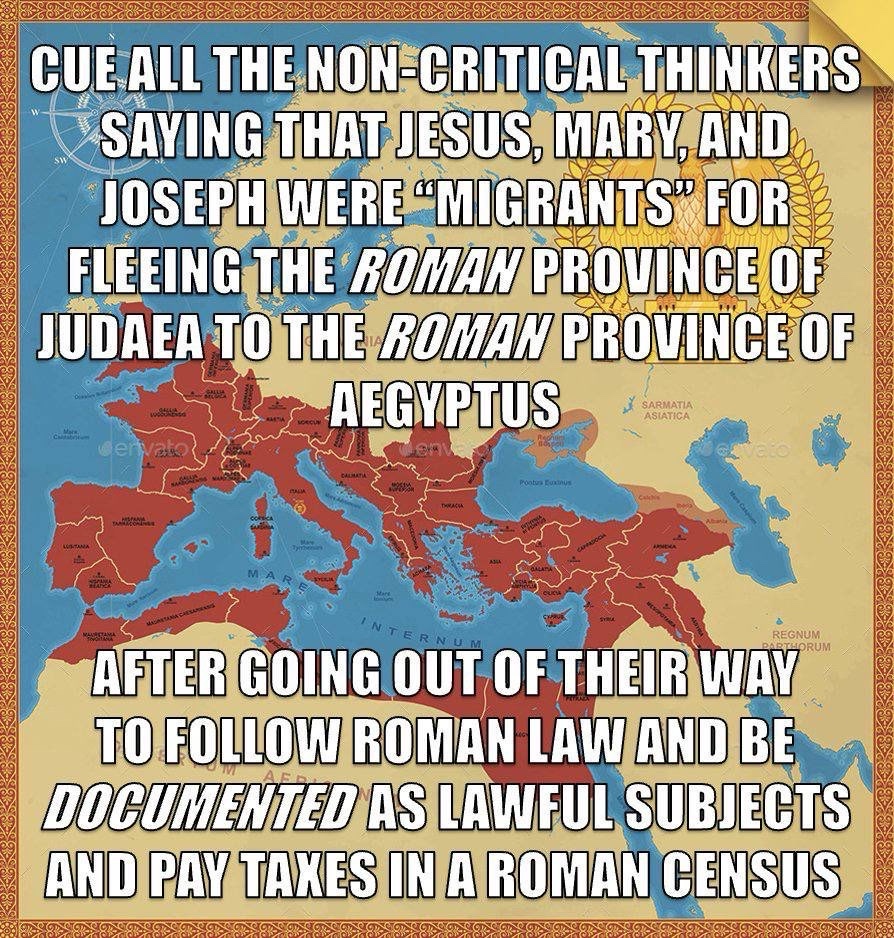














St. Andrew Christmas Novena begins November 30th!!
The St. Andrew Christmas Novena – which isn’t exactly a novena because it is 25 days long from November 30th through December 24th – begins tomorrow, November 30th, the Feast of St. Andrew. It’s a great feast for me, because Andrew is my Confirmation Name. It was a fortuitous choice, as ‘Andrew’ means “manly” and “brave”, “strong” and “courageous” in Greek. I like to think that St. Andrew, being St. Peter’s big brother, would defend Peter in a street fight, which is definitely what defending the Petrine See against the Bergoglian Antipapacy feels like.
I’ve seen and personally received great graces from this beautiful devotion over the years, and strongly recommend it. In addition to the obvious Matthew 17:20 Intention, I have several health intentions (for others, not myself) this year, as I know many, many people do. And this year many people have financial and real estate intentions. And, as always, so many people are praying for conversions, and especially REVERSIONS to the One True Faith.
Here is the text of the Novena – you say the following prayer fifteen times per day – and break the fifteen up however you would like:
Hail, and blessed be the hour and moment at which the Son of God was born of a most pure Virgin in a stable at midnight in Bethlehem in the piercing cold. At that hour vouchsafe, I beseech Thee, to hear my prayers and grant my desires. (Mention your intentions here) Through Jesus Christ and His most Blessed Mother. Amen.
And here is the fourfold intention of the Matthew 17:20 prayer initiative:
-That Antipope Bergoglio be publicly recognized as an Antipope and removed as such, and that the entire Bergoglian Antipapacy be publicly nullified.
-That Pope Benedict XVI Ratzinger be publicly recognized as being and having been the one and only living Vicar of Christ, uninterrupted, from April ARSH 2005 until his death on December 31, ARSH 2022.
-That Jorge Bergoglio repent, revert to Catholicism, die in a state of grace in the fullness of time, and someday achieve the Beatific Vision.
-For the repose of the soul of Pope Benedict XVI Ratzinger
St. Andrew, pray for us.
Our Lady of Copacabana, slayer of the Nachomama demon, pray for us.
Lord Jesus Christ, have mercy on us and upon your Holy Catholic Church, outside of which there is no salvation.
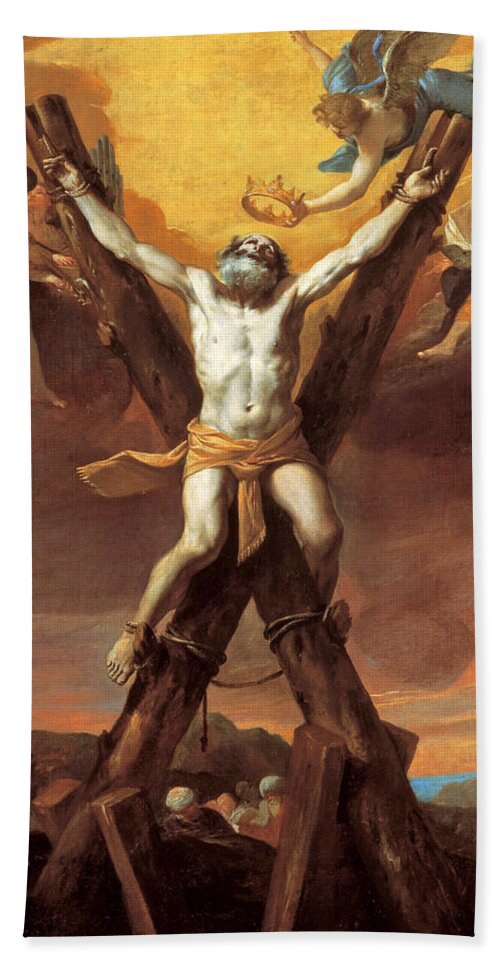
The Crucifixion of St. Andrew, Mattia Preti, ARSH 1651
Stickypost: Mazza Advent Mini-mester begins Sunday – “The Third Secret of Fatima and the FrancisChurch
The Third Secret & The Francis Church
Starts Sunday December 3rd
This Advent uncover the Apostasy Our Lady of Fatima warned us about! And what YOU can do about it!
Four Sundays of Advent Mini Course
ENROLL
Live Classes Sun Dec 3rd, at 5pm PDT/8pm EDT and will run approximately 70-80 minutes. Q&A will follow for 10 minutes or more for those who can stay. Content: Ages 13 and up. Recorded video link sent afterwards so you can watch on your own time!
Apparently, to everyone’s shock, The Crocodile had not the common decency to eat him last.
“Just play nice and wait until he dies,” he said.
“I see no evidence that he isn’t the Pope, and it’s dangerous to speculate,” the man said.
THIS ISN’T MY PROBLEM. THIS CAN ONLY BE SORTED OUT IN THE FUTURE.…
Cardinal Burke could END the Bergoglian Antipapacy yet today. Easily. And he could have and should have done this EVERY DAY for the past decade. Here is all he need say:
“Significant canonical irregularities have been identified with regards to the putative resignation proffered by (the late) Pope Benedict XVI in February of 2013. Pending further investigation, I (we) hereby declare a state of emergency suspense.”
Basta.
